Under Jeffrey Lurie, the Eagles have a greater overall winning percentage and have won more playoff games than all the previous ownership groups combined ...
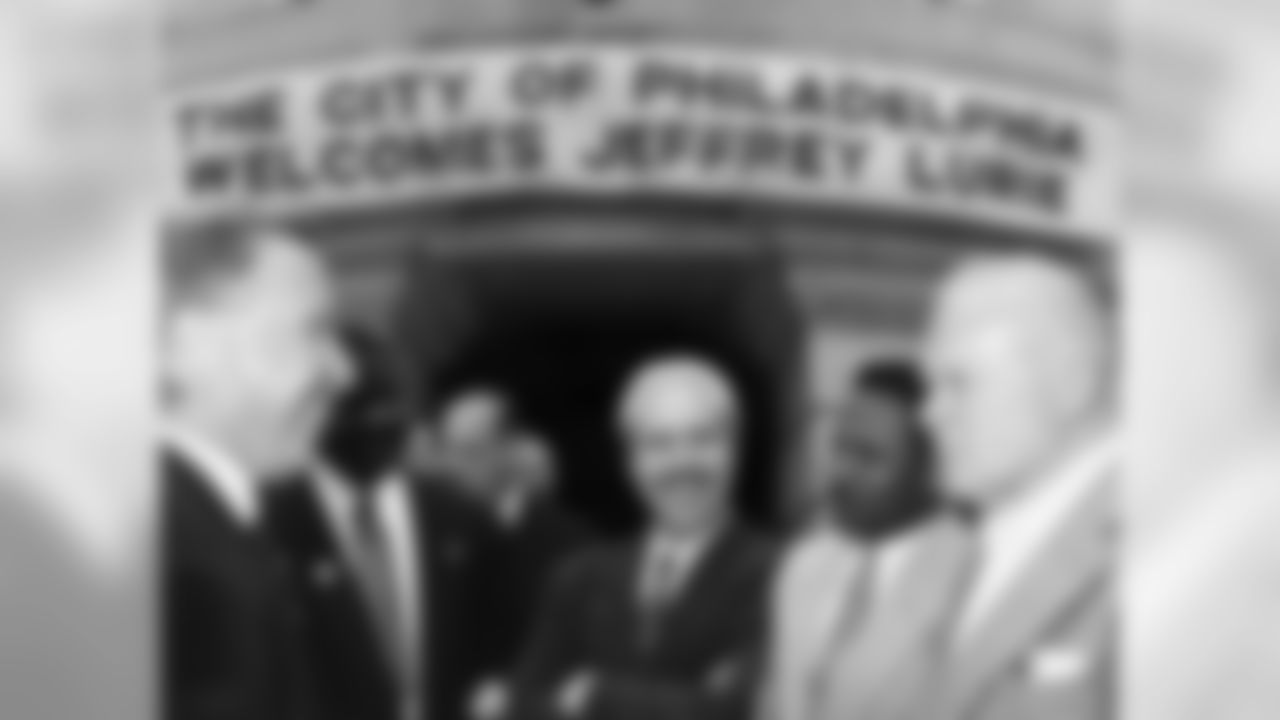
May 14, 1994 - Jeffrey Lurie becomes owner of the Philadelphia Eagles

January 11, 1999 - Jeffrey Lurie names Andy Reid as the team's head coach
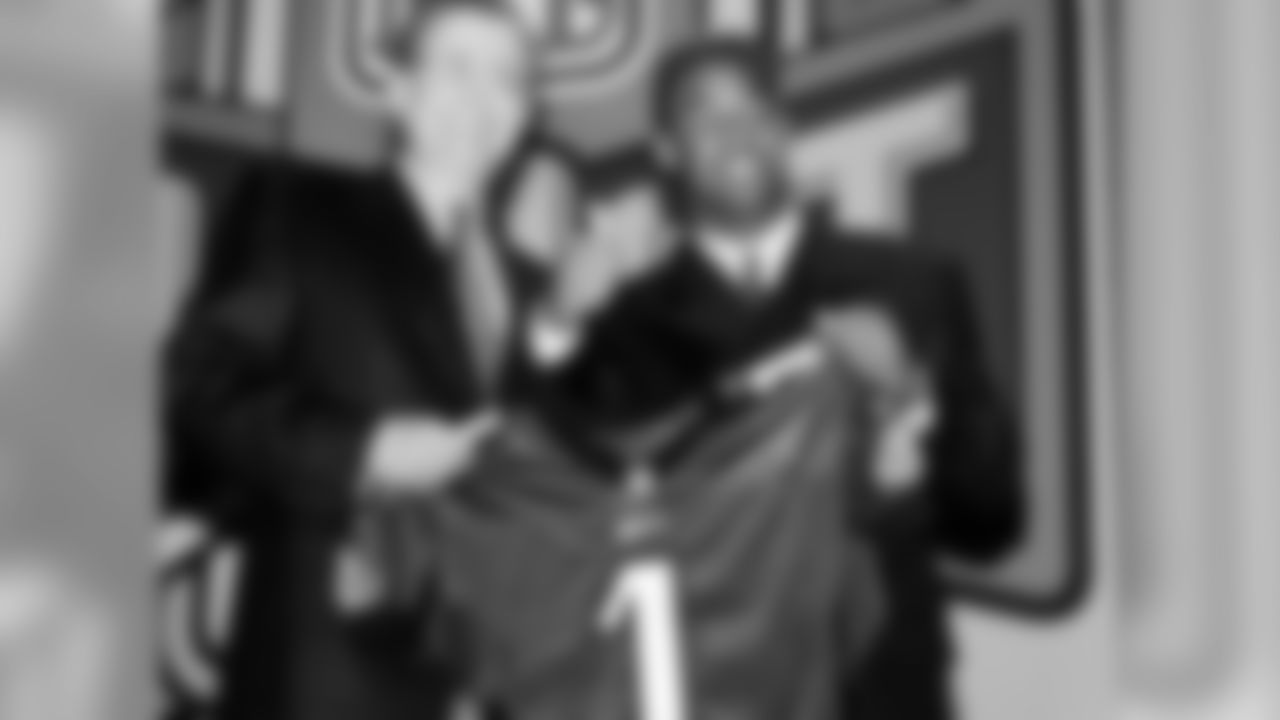
April 17, 1999 - The Eagles draft quarterback Donovan McNabb

March 7, 2001 - The doors of the NovaCare Complex open for the first time

September 8, 2003 - Sylvester Stallone a.k.a. Rocky helps open Lincoln Financial Field
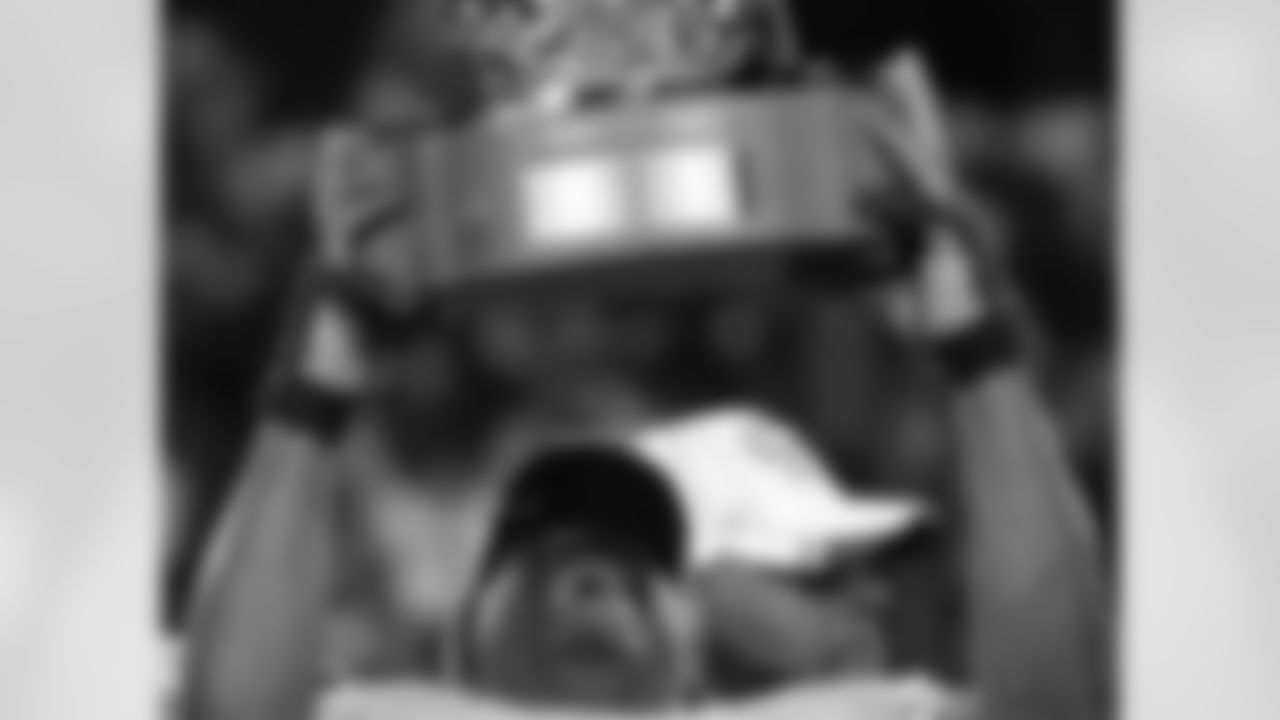
January 23, 2005 - Eagles win the NFC Championship
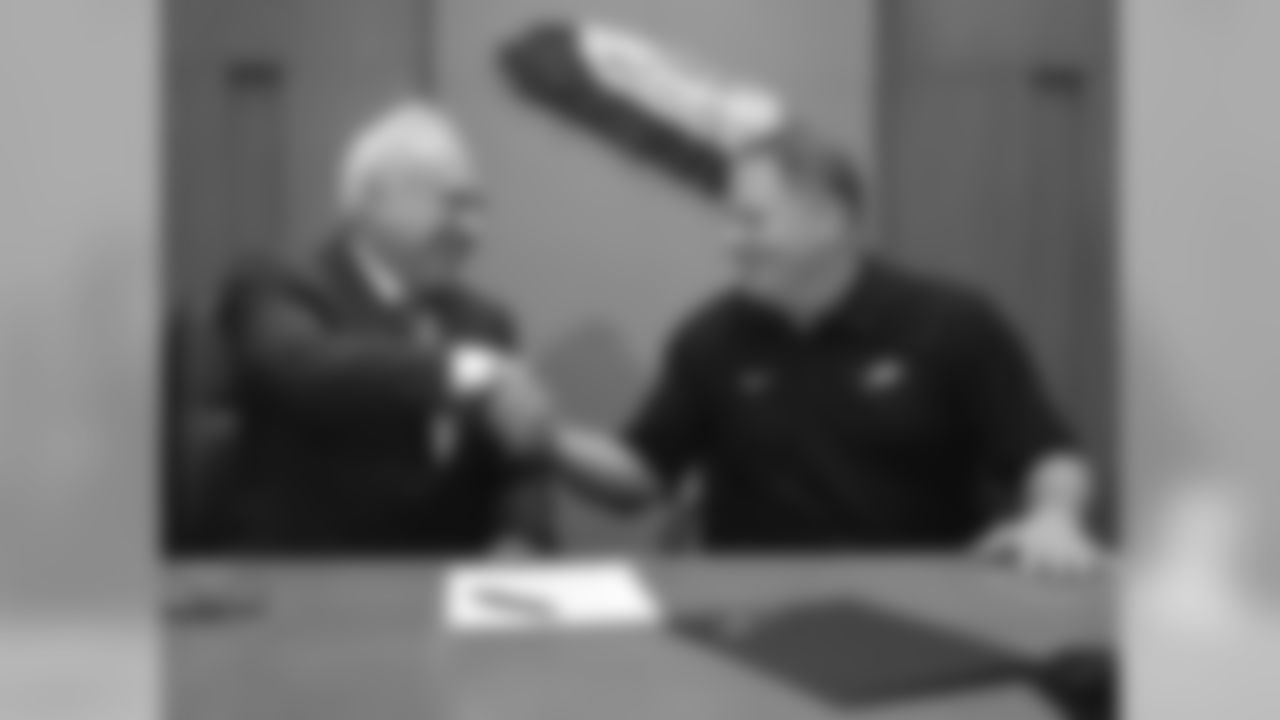
January 16, 2013 - Jeffrey Lurie names Chip Kelly as the team's head coach
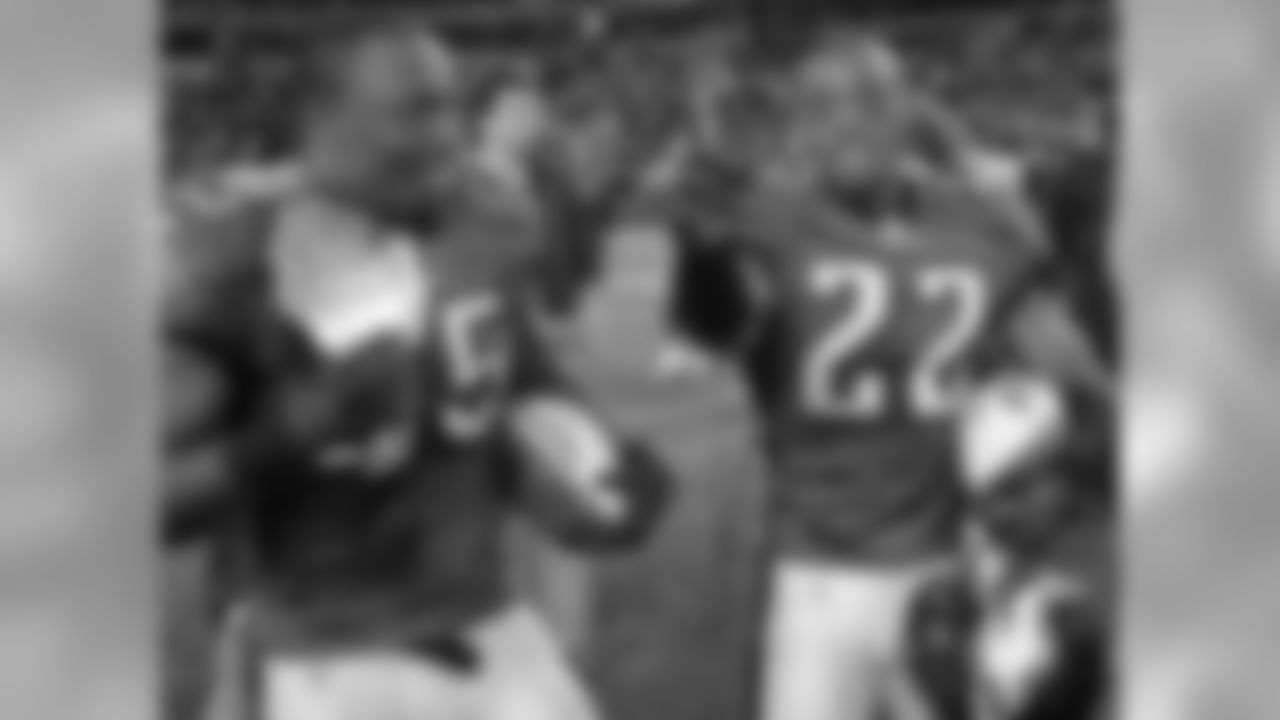
December 29, 2013 - The Eagles win the NFC East title in Chip Kelly's first season
Jeffrey Lurie walked onto the Philadelphia stage as something of a mystery. He was an out-of-towner for one thing. Grew up in the Boston area rooting for the Red Sox, Celtics and Bruins. He was a movie producer, who has since won two Academy Awards, an investor and a Ph.D. A nice résumé but how, exactly, did he fit as owner of the Philadelphia Eagles?
At his first public reception on May 17, 1994, Lurie stood in City Hall courtyard, shaking hands and posing for photographs with city officials and season ticket holders. He smiled a lot and said all the right things – he even claimed to like the Mummers music that greeted him – but, still, no one knew what to expect. Was he here for the long haul or just another guy passing through?
Well, 20 years have passed and he is still here. Indeed, Lurie is the longest-tenured owner in team history. Also the winningest. Under Lurie, the Eagles have won 11 playoff games and captured seven division titles. He has overseen the construction of the NovaCare Complex, Lincoln Financial Field and a recent $125 million revitalization of the stadium, projects that would have seemed like a pipe dream when he first arrived.
It hasn't always been easy and the ultimate goal of winning a Super Bowl has not yet been realized, but Lurie has proven to be a good owner. He has made mistakes, which he freely admits, but he learned from them. He put down roots in the community, committed himself to numerous charities and, in the process, embraced the notion of being a Philly guy.
It did not happen overnight. Lurie did not know a whole lot about Philadelphia before he bought the Eagles. He tried to buy his hometown team, the Patriots, but lost out to Robert Kraft. He tried to buy into an expansion franchise in Baltimore, but he missed out there as well. He finally connected when the Eagles went on the block in 1994. He paid Norman Braman a reported $185 million, according to Forbes, for the franchise and while he was thrilled to be in the NFL, he needed time to get the full picture.
Shortly after taking over, Lurie invited several local sports writers to lunch. He wanted to get acquainted but he also wanted to learn more about the team. At one point, he leaned over and asked, "Did the fans really throw snowballs at Santa Claus?"
"Yes, they did," I said.
His eyes widened. "Really?" he said. "I heard the stories but I didn't believe it."
"It happened," I said. "I was there."
I told Lurie the whole story, how the 1968 season spiraled out of control, how owner Jerry Wolman was going broke and the fans wanted coach Joe Kuharich gone and they took out their frustration by pelting a shabby Santa with snowballs at the final home game. Lurie listened with a "what-did-I-get-myself-into?" look on his face.
"But here's the good news," I said. "The fans were there. They may have been throwing snowballs, but they were there. Lousy team, lousy weather, it didn't matter. The fans came out. Eagles fans always come out."
Lurie smiled.
"That's good to know," he said.
Lurie has seen it now for two decades. The fans filled the Vet and now they fill Lincoln Financial Field every Sunday. When he hoisted the George Halas Trophy after winning the NFC Championship Game in 2005, Lurie thanked them for their support. He called them "the most passionate, most deserving fans you can ever imagine."
He still has his Boston loyalty, certainly, and he reveled in the Red Sox winning the World Series, but he clearly understands Philly now and knows what winning the Super Bowl would mean to the city. It is something he thinks about every day. Lurie is not afraid to take chances. He has hired three head coaches, none of them with NFL head coaching experience, yet all of them won NFL Coach of the Year honors within their first two seasons including Chip Kelly who became the first rookie head coach to lead the Eagles to a division title in 2013.
One thing has been clear from the beginning: Lurie is, above all else, a fan. When he bought the team, he described himself as a "fan, slash, owner." He is a fan in a way Norman Braman never was. Braman was a businessman who liked the prestige and power of owning an NFL team, but he wasn't watching the Blue-Gray Game on a Saturday afternoon. Lurie, on the other hand, was. In fact, he was taking notes.
| History Of Eagles Owners | |||
|---|---|---|---|
| Owners | Years | Playoff Wins | Regular Season |
| Jeffrey Lurie | 1995-Present | 11 | 169-133-2 (.559) |
| Norman Braman | 1985-94 | 1 | 86-72-1 (.544) |
| Leonard Tose | 1969-84 | 3 | 96-129-6 (.429) |
| Jerry Wolman | 1964-68 | 0 | 28-41-1 (.407) |
| James P. Clark | 1949-63 | 2 | 87-91-6 (.489) |
| Alexis Thompson | 1941-48 | 2 | 38-36-5 (.513) |
| Bert Bell/Lud Wray | 1933-40 | 0 | 19-65-3 (.236) |
The Eagles owners have been a colorful lot, from the original owner Bert Bell, who later became NFL Commissioner, to Lex Thompson, who played on the U.S. Olympic field hockey team, to the group known as the "100 Brothers" headed by James Clark, to Wolman, the self-made millionaire who went bust, to Leonard Tose, the trucking executive and playboy who saw the Eagles to their first Super Bowl appearance. But Lurie is a different breed altogether.
He is a football wonk. He fell in love with the game when he was 7 years old watching the 1958 NFL Championship, the sudden death game between the Baltimore Colts and New York Giants, with his father. He said the game seemed "bigger than life." Two years later, he was at the Boston Patriots' first game, part of the American Football League start up. He never missed a home game.
When the Patriots moved to Foxboro Stadium, Lurie moved with them. His seats were in Section 107, right behind the players' wives. When quarterback Tim Hasselbeck joined the Eagles, Lurie told him that he saw Hasselbeck's father Don, a tight end, play for the Patriots. Lurie was a fan of quarterback Steve Grogan and defended him when other fans heckled and booed him.
When Lurie went to Hollywood to become a movie producer, he maintained his interest in sports, in particular pro football. When he picked up the daily newspaper, he turned to the sports page, not the entertainment section. He subscribed to virtually every football publication and newsletter. Each spring he had draft day parties at his house. "I declared draft day a national holiday," Lurie said.
If you talked to Lurie for five minutes, you saw his deep love for the game and his appreciation for its history. In the summer of 2000, the NFL held a gala reunion at the Pro Football Hall of Fame in Canton, Ohio. It brought back almost all the living Hall of Famers for the induction weekend, a special occasion with every great player from Otto Graham to Joe Montana all gathered in one place. Lurie attended the event and brought Donovan McNabb, then a second-year pro, as his guest.
"I felt it was important for Donovan to see this," Lurie said. "This is the history of the game and he is going to be part of it."
It was a gesture that spoke volumes about Lurie, about his regard for his young quarterback but also for his appreciation for the game and the men who built it. In 2010, he marked the 50th anniversary of the Eagles' last NFL Championship team by hosting the players, their wives and families for the season opener. He presented each player with a handsome watch commemorating their championship season. Hall of Fame receiver Tommy McDonald was so moved he thanked Lurie with a tearful hug.
When Lurie addressed the players from the 1960 team, he said his goal was to honor them in the most meaningful way possible and that was to bring another NFL championship home to Philadelphia. After Kelly's first season, you get the feeling the Eagles are headed in the right direction.
"We are fully committed to achieving that goal," Lurie said, "and I'm confident we will."
An award-winning writer and producer, Ray Didinger was inducted into the Pro Football Hall of Fame in 1995. He has also won six Emmy Awards for his work as a writer and producer at NFL Films. The five-time Pennsylvania Sportswriter of the Year is a writer and analyst for Comcast SportsNet. Didinger will provide Eagles fans a unique historical perspective on the team throughout the season for PhiladelphiaEagles.com. You can read all of his Eagles History columns here. He is also the author of The New Eagles Encyclopedia, which is already among the hot sellers on Amazon.















